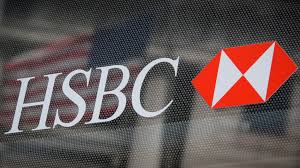
As new revised strategy that focuses primarily on wealth management in Asia was announced by HSBC Holdings PLC on Tuesday as the bank let go of its long-term profitability target, after a sharp drop in the 2020 profits of the company because of the Covid-19 pandemic hit.
Its previously followed target of attaining a return on tangible equity of 10 to 12 per cent in the long term was ditched by HSBC because of the low interest rate environment and tough market conditions, said the bank and added that its reviewed target is achievement of a return on tangible equity of 10 per cent in the medium term.
The current business environment of the banking sector, hit by the low interest rates worldwide, was underscored by these measures of the biggest bank of Europe. At the same time, the prospect of the wealth management business globally was boosted by the rally in global financial markets.
The bank has significantly enhanced its focus on Asia, which accounted for a lion’s share of the profits of HSBC’s profit’s for 2020, because of the pressure on profit margins and its increasing losses faced by the bank in Europe.
"The big structural shift that’s gone on since we set out the plan last February has really been the shift in interest rates down toward zero in most markets that we do business in," Ewen Stevenson, HSBC's group chief financial officer, told the media.
"If interest rates were 100 basis points higher today across the board it would improve our returns by 3 percentage points."
In what was the first payout announced by the bank since October of 2019, the bank said it would pay a dividend of $0.15 a share in cash. In 2019, the Bank of England put an embargo on all major banks on paying dividends or share buybacks throughout 2020 in ordered to conserve capital.
The bank however said that its past practice of paying a quarterly dividend would not be followed by it and instead it has aimed to achieve a payout ratio of between 40% and 55% of reported earnings per ordinary share starting 2022, which was much lower than what the bank had paid in recent years.
There would also be significant cuts in many of the back office functions of the company including its technology and operations, HSBC also said. It however did not make any comment about the possible number of job losses because of this move. In 2020, the bank had cut 11,000 jobs globally and had signalled possibility of more cuts.
For 2020, the bank reported a profit before tax of $8.78 billion which was 34 per cent lower year on year but slightly more than the average of analysts' estimates compiled by the bank of $8.33 billion.
Investors seemed to understand the reviewed and modest ambitions of the bank.
"It's hard to have high ambitions in this climate, or at least dangerous to declare them if they exist," said Hugh Young, managing director at Aberdeen Standard, the bank's 9th-largest shareholder.
(Source:www.livemint.com)
Its previously followed target of attaining a return on tangible equity of 10 to 12 per cent in the long term was ditched by HSBC because of the low interest rate environment and tough market conditions, said the bank and added that its reviewed target is achievement of a return on tangible equity of 10 per cent in the medium term.
The current business environment of the banking sector, hit by the low interest rates worldwide, was underscored by these measures of the biggest bank of Europe. At the same time, the prospect of the wealth management business globally was boosted by the rally in global financial markets.
The bank has significantly enhanced its focus on Asia, which accounted for a lion’s share of the profits of HSBC’s profit’s for 2020, because of the pressure on profit margins and its increasing losses faced by the bank in Europe.
"The big structural shift that’s gone on since we set out the plan last February has really been the shift in interest rates down toward zero in most markets that we do business in," Ewen Stevenson, HSBC's group chief financial officer, told the media.
"If interest rates were 100 basis points higher today across the board it would improve our returns by 3 percentage points."
In what was the first payout announced by the bank since October of 2019, the bank said it would pay a dividend of $0.15 a share in cash. In 2019, the Bank of England put an embargo on all major banks on paying dividends or share buybacks throughout 2020 in ordered to conserve capital.
The bank however said that its past practice of paying a quarterly dividend would not be followed by it and instead it has aimed to achieve a payout ratio of between 40% and 55% of reported earnings per ordinary share starting 2022, which was much lower than what the bank had paid in recent years.
There would also be significant cuts in many of the back office functions of the company including its technology and operations, HSBC also said. It however did not make any comment about the possible number of job losses because of this move. In 2020, the bank had cut 11,000 jobs globally and had signalled possibility of more cuts.
For 2020, the bank reported a profit before tax of $8.78 billion which was 34 per cent lower year on year but slightly more than the average of analysts' estimates compiled by the bank of $8.33 billion.
Investors seemed to understand the reviewed and modest ambitions of the bank.
"It's hard to have high ambitions in this climate, or at least dangerous to declare them if they exist," said Hugh Young, managing director at Aberdeen Standard, the bank's 9th-largest shareholder.
(Source:www.livemint.com)














